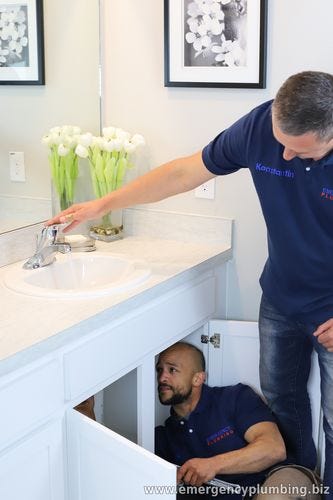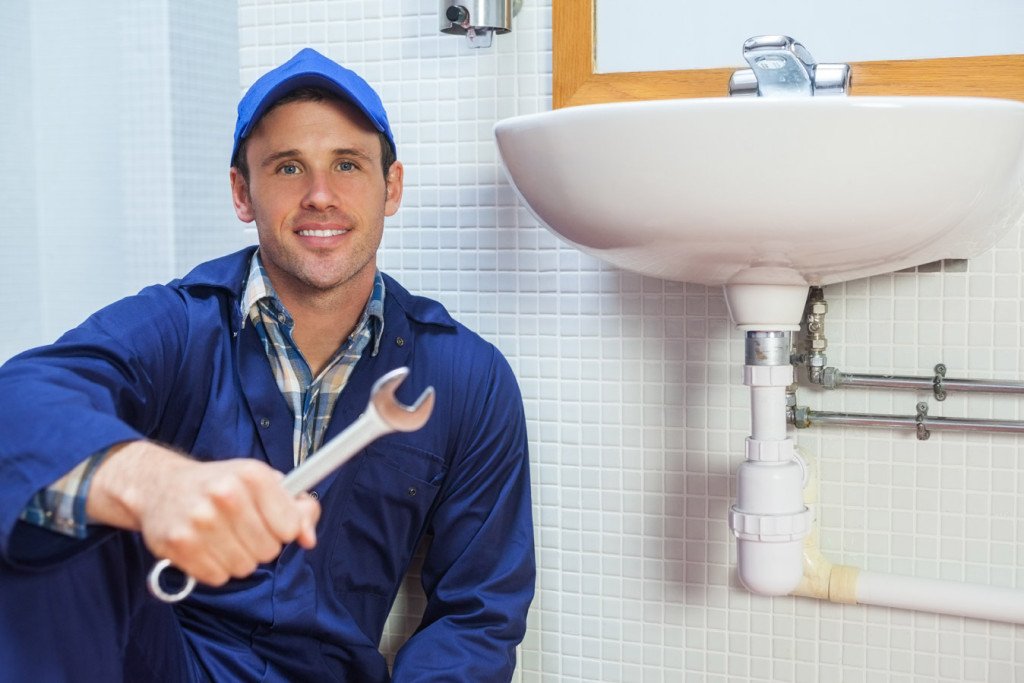Must-Know Bathroom Plumbing Guidelines for First-Time Buyers
Must-Know Bathroom Plumbing Guidelines for First-Time Buyers
Blog Article
This post underneath involving General Plumbing Tips for New Homeowners is indeed enjoyable. Don't overlook it.

For new house owners, understanding and keeping restroom plumbing can save both time and money by stopping expensive concerns down the line. Below are some important shower room pipes ideas to assist you maintain whatever running efficiently.
Familiarize Yourself with the Key Shut-Off Shutoff
Recognizing where the major water shut-off shutoff lies in your home is important. This permits you to promptly switch off the water in case of significant leakages or during plumbing emergencies, avoiding comprehensive water damage.
Routinely Inspect for Leaks
Tiny leakages can result in big troubles. Routinely examine under sinks, around commodes, and near pipes fixtures for any indications of leaks. Try to find moisture, little drips, or rust. Catching and repairing leaks early can avoid a lot more severe damages and save water.
Do Not Overlook Slow Drains Pipes
If your sink or tub is draining gradually, it's frequently an indicator of an obstruction creating. Resolving this early can prevent a total blockage. Use a plunger or a plumber's serpent to clear out particles. Avoid making use of chemical drainpipe cleansers as they can damage your pipelines gradually.
Know What Not to Flush
Toilets are not garbage disposals. Stay clear of flushing anything besides bathroom tissue and human waste. Items like wipes, womanly hygiene products, and cotton swabs must be gotten rid of in the garbage to avoid obstructions and sewer back-ups.
Install Strainers in Drains
Area strainers in your sink and bathtub drains to capture hair and various other debris prior to they enter your plumbing system. Cleaning up the strainers regularly will aid stop buildup and maintain water flowing easily.
Keep Your Water Heater
Guarantee your hot water heater is set to an ideal temperature (commonly around 120 levels Fahrenheit) to prevent hot and minimize power use. Flush the storage tank annually to eliminate debris buildup, which can minimize the performance and life expectancy of your heating system.
Update Your Fixtures
If your home has older fixtures, think about updating to more efficient designs. Modern commodes, showerheads, and faucets are developed to make use of less water while offering great stress, which can significantly decrease your water expense and environmental impact.
Beware with Do It Yourself Plumbing Repairs
While it's appealing to manage all home repair work by yourself, beware with pipes. Some concerns could require professional know-how, particularly if they include primary water lines or drain fixings. Working with a professional can sometimes be a lot more economical than do it yourself, specifically if it protects against more damages.
Plan For Winter
Safeguard your pipes from freezing during cold weather by insulating pipes in unheated areas like cellars, attic rooms, and garages. During extreme cold, let cold water drip from faucets offered by revealed pipes to assist avoid freezing.
Schedule Regular Upkeep
Take into consideration scheduling annual inspections with a licensed plumber. They can spot concerns that you could miss, such as hidden leakages or damage on pipes and fixtures. Regular upkeep assists expand the life of your pipes system and can avoid emergencies.
Conclusion
Recognizing and preserving your home's restroom pipes can avoid many usual problems. By following these important pointers, you can guarantee your washroom stays functional and reliable, conserving you time and money in the future.
Essential Plumbing Tips for Homeowners: Keep Your Pipes Flowing Smoothly
As a homeowner, understanding the basics of your plumbing system can save you time, money, and a lot of headaches. Plumbing issues can range from minor annoyances like dripping faucets to major problems like burst pipes that cause significant damage. This guide provides essential tips to help you maintain your plumbing system and tackle common issues.
Understanding Your Plumbing System
Supply System: Brings fresh water into your home from a municipal source or a well. Drain-Waste-Vent System: Removes wastewater and vents sewer gases outside. Fixtures and Appliances: Includes sinks, toilets, showers, dishwashers, and washing machines. Basic Maintenance Tips
Regular Inspections: Periodically check for leaks, corrosion, and other signs of wear and tear. Look under sinks, around toilets, and near water heaters. Know Your Main Shut-Off Valve: In case of a major leak, you’ll need to shut off the water quickly. Ensure everyone in your household knows where the main shut-off valve is located. Prevent Frozen Pipes: In cold climates, insulate exposed pipes and let faucets drip during extreme cold to prevent freezing. Use Strainers: Install strainers in sinks and tubs to catch hair, food particles, and other debris that can cause clogs. Common Plumbing Issues and Solutions
Clogged Drains:
Prevention: Avoid pouring grease down the drain and use drain screens to catch debris. DIY Fix: Use a plunger or a plumbing snake to clear minor clogs. For stubborn clogs, a mixture of baking soda and vinegar can sometimes help. Leaky Faucets:
Prevention: Replace washers and seals regularly. DIY Fix: Turn off the water supply, disassemble the faucet, and replace worn parts.

Go Company Report this page